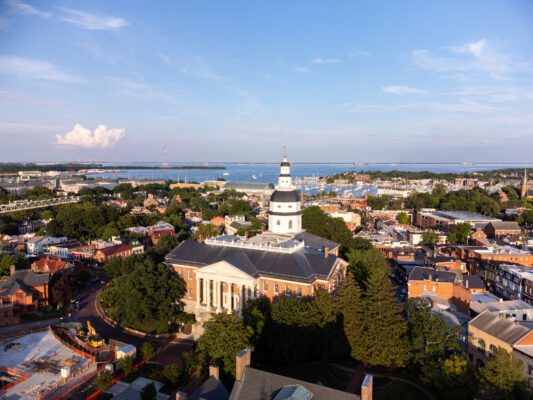Unless you worship in a tradition marked by the calendar of saints—like many of our Lutheran and Anglican brothers and sisters—chances are you’re not sure what exactly to do with Saint Patrick’s Day. Go ahead and register me as a Protestant of the Baptist sort, one typically not committed to the liturgical calendar and feast days. But Christians, even those like me, can benefit from some good historical reflection when it comes to Saint Patrick.
What does Christian “cultural engagement” look like in a dramatically anti-Christian context? We don’t typically think of Saint Patrick, or Patricius, as an icon of cultural engagement. Instead, he is often cited for his commitment to the evangelization of Ireland. However, this fifth century bishop can teach us a lot about how Christians should understand their witness in the world. Let me propose three lessons we can learn from Patrick.
1. The Christian life is one of mission.
Perhaps this is where Patrick is best known to us. Born to a Christian family in the late fourth century in Britain, Patrick rejected the Christian faith of his parents. A number of dramatic developments and experiences of tremendous suffering were what God used to convert him. He was kidnapped as a teenager and taken to Ireland as a slave, where he remained for six years until his escape and return to Britain. However, he experienced a dramatic missionary call to return to Ireland. Years later, Patrick recounted this experience. Reminiscent of Paul’s Macedonian call, he remembered a vision in the night of a man from Ireland who had with him a set of letters. After taking one of these to read, titled “The Voice of the Irish,” Patrick remembered:
“While I was reading this I thought I heard the voice of those who dwell by the wood of Voclut near the western sea. It was as if they were crying out with a single voice: ‘Holy boy, we beg you, come back and walk among us again.’ I was struck through my heart and could read no more, then I awoke.”
Most of what we know of Patrick comes to us from a variety of accounts and stories from several generations of admirers. But we only have two of his own original writings. While the Confessions of Saint Patrick are perhaps known to some, his Letter to the Soldiers of Coroticus is less so. But it presents us with a great picture of the missionary bishop’s worldview.
By all accounts, Coroticus was a British warlord who had raided Ireland along with his troops, killing or enslaving a great many Christians, including many who had been converted recently under Patrick’s ministry. His letter was thus a strong letter of excommunication, pronouncing judgment on the aggression and, in particular, the treatment of Christians.
Did I come to Ireland without the help of God because I chose to? It was God who brought me here. I am bound by the Holy Spirit, so that I can’t even see my own family. Is it my own doing that I feel blessed mercy toward the very people who once enslaved me and killed so many male and female servants from my father’s household? I am a freeborn man by the measure of this world and the son of a decurion. But I sold my noble birth to serve others. I am not ashamed of this nor do I regret it. I am a slave of Christ for a foreign people for the sake of the indescribable glory of life everlasting which is in Christ Jesus our Lord.
The story even goes that Patrick, upon his return to Ireland as a missionary, returned to seek out the man who had held him as a slave. What prompts someone to seek out the eternal good of those who had wronged him? This is the power of saving grace and the transformative work of the Holy Spirit, for sure.
2. Christians should expect opposition.
Patrick had to deal with wicked and violent figures like Coroticus. But he also faced opposition from within the church. As Michael Haykin points out, many Christians in the West appeared “to have given little thought to evangelizing their barbarian neighbors.” The details are not entirely clear, but it seems that toward the end of his life, Patrick was accused of engaging in his work in Ireland for his own financial gain. Additionally, it seems that sins he had committed as a teenager, prior to conversion, had been disclosed publicly in an attempt to shame him. In fact, Patrick expressed particular pain that this had come from a dear friend, “the one I had entrusted with the secret of my soul.” This friend had promised to be his advocate, but had publicly and wrongly disgraced Patrick.
We expect to be opposed and criticized from those outside of the faith. But it is especially painful when our character is unjustly questioned or those who profess Christ slander us. And it’s even more so when it comes from a friend. Of course, this can happen for any number of reasons. And there is much to be said for heeding the loving rebukes of a friend who confronts us over sin. But there will be times for Christians, including those on the front lines of cultural engagement, who will find others assuming the worst of their motives or showing themselves to be patently disloyal. If that’s you, take heart. You are counted among brothers and sisters who have walked that path, whose comfort was Christ himself.
3. Christians cannot afford to “forget” the future.
The Christian faith is one built upon history—specifically, the historical claims surrounding the person and work of Christ. But it also requires us to always keep the future in mind, insofar as God has revealed, in Scripture, his promised victory and the consummation of all things in Christ.
Patrick seems to have understood this and to have drawn real hope and encouragement from it, even in great difficulties. In particular, he understood his ministry as part of a much grander story, expecting that the evangelization of Ireland portended the imminent return of Christ: “I am among those men the Lord said would come when his gospel would be preached as a witness to all nations before the end of the world. We now have seen these words are fulfilled. Behold, we are witnesses that the gospel has been preached to the edge of the inhabited world.”
Patrick could never have imagined the vastness of a world still entirely unknown to western Europeans in the fifth century. But his mindset remains instructive nonetheless. The church lives between the times, but always with an anticipation of the nearness of the age to come, expecting that Christ may indeed return at any time.
Ultimately, this hope was also in what that future reality would bring with it.
“For without a doubt we shall rise again on that day in the brightness of the sun which is the glory of Jesus Christ the redeemer. We will be sons of the living God and fellow heirs with Christ, conformed to his image. For we shall rule from him, through him, and in him.”
Maybe on Saint Patrick’s Day, that’s the thing we most desperately need to be reminded of. This “present evil age” is nearing its end and, if we keep the promised future in sight, it might just prompt us to be more hopeful, fortify our courage and strengthen our resolve.










